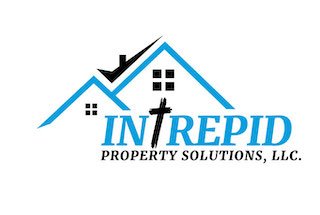If you’re thinking about selling your house and you’re wondering what your options are, perhaps you’re exploring something called “seller financing” (also called “owner financing”). Owner financing is a little-known but very effective way to sell your house. And maybe you’re wondering, is owner financing a good idea for the seller in COLUMBIA? That’s a great question and we’ll talk about it in this blog post…
Here’s How Owner Financing Works
In a normal home-selling transaction, the buyer (who doesn’t have ALL of the money for a house) goes to a lender (such as a bank) and they pay a down payment and then make regular monthly mortgage payments until the borrowed amount is paid in full.
This is the way most people are familiar with buying and selling. But there’s another way to sell your house that you might not be aware of, and it involves owner financing.
With owner financing, everything is similar except this one thing – the seller of the house acts like the bank: the buyer pays a down payment to the seller and then makes regular payments (just like mortgage payments) to the seller until the house is paid in full. Then the ownership of the house transfers to the buyer.
Many Sellers Are Wondering, Is Owner Financing A Good Idea For The Seller In COLUMBIA
Many sellers do find owner financing to be a great idea.
- They like that they have a larger group of potential buyers to sell to (including those who might not qualify for traditional bank financing)
- They like that they get monthly cash flow from financing payments
- They like that they still own the house and are protected, should the seller stop paying
- They like that there is no property management
Here, we will expand on the potential benefits for the seller:
- Faster Sale: Owner financing can attract a larger pool of potential buyers who may not qualify for traditional mortgages due to credit issues or other financial constraints. This broader range of potential buyers can lead to a quicker sale, which is especially appealing if the seller is looking to sell their property promptly.
- Higher Selling Price: Sellers can often negotiate a higher selling price when offering owner financing. Buyers may be willing to pay more for the property if they can secure financing with more flexible terms or a lower down payment, even if the interest rate is higher than the current market rate.
- Regular Income: Sellers receive regular monthly payments from the buyer, which can provide a steady stream of income. This can be beneficial, particularly for sellers who want to supplement their retirement income or reinvest the proceeds from the sale into other investments.
- Reduced Closing Costs: Owner financing typically involves fewer closing costs for both parties compared to a traditional mortgage transaction. This can be advantageous for the seller, as they may save on various fees associated with the sale.
- Tax Benefits: Seller financing may offer tax benefits for the seller. Interest income generated from the financing arrangement can be taxed at a potentially lower rate than other types of income. Consult a tax advisor to understand the specific tax implications.
- Flexible Terms: Sellers have the flexibility to negotiate the terms of the financing agreement, including the interest rate, down payment, and repayment schedule. This flexibility allows sellers to tailor the deal to their specific financial needs and objectives.
- Asset Protection: In the event that the buyer defaults on payments, the seller retains ownership of the property. This can be advantageous for the seller as it mitigates the risk of losing the property entirely in case of default.
What’s not to love? You get ongoing cash flow and protection, and you’re still able to sell your house. That’s a perfect recipe. Whether this is your primary residence that you’re looking to sell, or you’re a landlord who is ready to start selling some of your rental property, owner financing might be a great option for you.
While owner financing offers these advantages, it’s important to be aware of potential drawbacks and risks. These may include dealing with non-paying buyers, the need to manage the financing process, and potential legal complexities. It’s highly advisable for sellers considering owner financing to work closely with a real estate attorney or financial advisor to ensure the terms of the agreement are in their best interest and comply with local regulations.
Ultimately, whether owner financing is a good idea for a seller in Columbia or any other location depends on their specific financial situation, goals, and risk tolerance. It can be a valuable tool for selling a property under the right circumstances, but it’s essential to carefully weigh the pros and cons and seek professional guidance before proceeding.
If you’d prefer to spread out payments or to have more buyers trying to buy your house, owner financing might be a great option for you. If you’re serious about selling your house and want to explore all of your options, take a closer look at owner financing.

